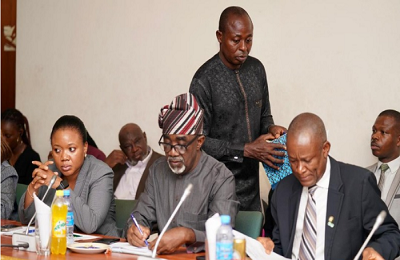ABUJA – Nigeria is taking significant steps to transform the Nigeria sugar industry, a sector officials believe is crucial for the nation’s prosperity. Minister of State for Industry, Senator John Owan Enoh, recently highlighted the sugar industry’s vital part in President Bola Tinubu’s ambitious goal to grow Nigeria’s economy to $1 trillion. Speaking at a public hearing focused on amending the National Sugar Development Council (NSDC) Act, Enoh shared, “About two weeks ago, the President spoke about sugar at the Federal Executive Council (FEC) meeting. That in itself is a reflection of the importance of sugar as a product.” The minister powerfully emphasised how a revitalised Nigeria sugar industry can drive job creation and spur development in rural areas, urging a dedicated national effort.
Master Plan: Big Goals Face Hurdles
A fully active Nigeria Sugar Master Plan (NSMP) is central to these ambitions, according to Kamar Bakrin, Executive Secretary of the NSDC. He outlined that the NSMP aims to save Nigeria more than $1 billion in foreign exchange each year. However, realizing this vision requires substantial investment – around $4.5 billion, Bakrin noted. He also voiced a critical concern: a recent policy that diverts 50% of the sugar levy to the Consolidated Revenue Fund could jeopardize the Master Plan’s success. “The sugar levy was not meant as a general revenue-generating mechanism but as a dedicated fund… Redirecting it threatens to undermine the very purpose for which it was created,” Bakrin cautioned, stressing that clear, dependable policies are essential to attract and keep investors.
Industry Voices: Calls for Clarity and Consistent Rules
Key players in the Nigeria sugar industry, including NAFDAC, BUA Group, and Flour Mills of Nigeria, expressed their support for the reforms during the hearing. However, they also strongly emphasized the need for unambiguous regulations and stable government policies. Iba Edward from NAFDAC pointed out potential issues with overlapping duties: “Some proposed provisions encroach on NAFDAC’s core responsibilities… We urge the lawmakers to clearly define roles.” Representing BUA Group, Aliyu Idi Hong highlighted their significant investment in a 50,000-hectare plantation and appealed for a predictable regulatory environment. “We are not there yet, but we are making progress,” he stated. Onome Okurah of Flour Mills added, “We’re cultivating over 6,000 hectares… With stronger partnerships, we expect tangible results.” Committee Chairman Enitan Dolapo Badru offered reassurance, stating the legislative changes would be inclusive and geared towards fostering growth within the sector.
A National Push for Sweet Success
The government’s commitment was reiterated by Senator Enoh. He called for a unified national approach: “The sugar sector has a huge role to play in the President’s commitment… Our attitude towards it must ensure it plays that role adequately.” This statement underscores the administration’s determination to cultivate the Nigeria sugar industry as a cornerstone of its broader strategy for national economic development.
By Abdullah Korede








